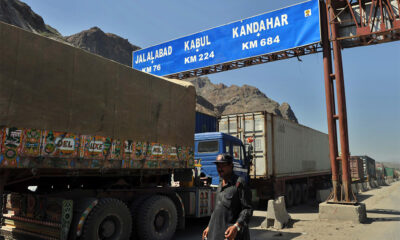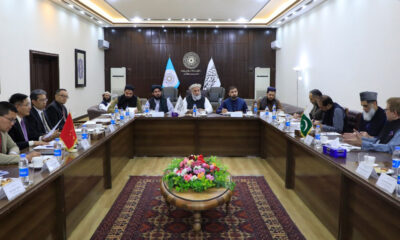Business
Food and oil prices fall in Afghanistan: IEA

The officials of the Islamic Emirate of Afghanistan (IEA) have recently said that the price of food items and oil has decreased by 30 percent in the country.
Mohammad Yunus Mohmand, deputy head of Afghanistan Chamber of Commerce and Investment (ACCI) has said that over the past month, the price of food items and oil have decreased by 30 percent, and in the near future the prices will decrease even more.
“The prices have decreased by 20 to 30 percent and will decline further,” said Mohmand.
Akhundzada Abdul Salam Jawad, a spokesman for the Ministry of Trade and Industry, also said that the ministry has taken more measures to control prices, but they want to import enough food and non-food items into the country.
“We assure the people that before the arrival of this winter season, we have plans to reduce the basic needs, and all commodities and raw materials, Inshallah will have a significant reduction,” said Salam Jawad.
At the same time, the officials of ACCI have further said that the decrease in food prices in the world has had a positive effect on food prices in Afghanistan.
However, the high level of poverty has caused the country’s residents to not be able to buy the materials they need, therefore, they call on the government to pay serious attention to the price of raw materials so that the rates do not rise again.
“Until yesterday, a can of oil was 1900 afghanis, today it has reached 1700 afghanis,” said a shopkeeper.
On the other hand, the price of oil products has also declined, and a number of sellers express hope that the price of oil and gas will decrease further.
“Previously, the price of diesel per liter was 100 afghanis, now it is 97 afghanis. Gasoline was 80 afghanis, now it is 78 afghanis,” said an oil seller.
This reduction in price of food items and oil come while recently the Ministry of Industry and Trade has signed a contract with Russia for the purchase of millions of tons of food and petroleum products, which according to experts, the prices will drop significantly when these products are imported.
Business
Pakistan’s exports to Afghanistan rise by over 64% in 9 months
Overall exports to Afghanistan were recorded at $623.285 million during July-March (FY2024-25) against exports of $378.922 million during the same period last year.
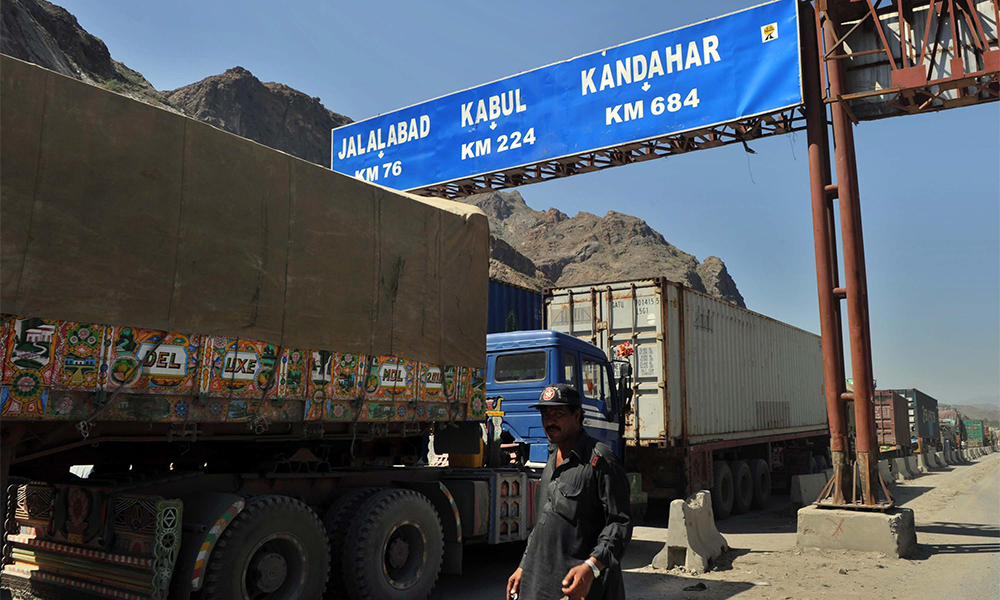
Pakistan has reported that its export of goods and services to Afghanistan witnessed an increase of 64.48 percent during the first nine months of the fiscal year (2024-25) as compared to the exports of the corresponding period of last year.
According to the State Bank of Pakistan (SBP), the overall exports to Afghanistan were recorded at $623.285 million during July-March (FY2024-25) against exports of $378.922 million during the same period last year.
On a year-on-year basis, the exports to Afghanistan decreased by 45.54 percent from $55.907 million in March 2024, against the exports of $30.445 million in March 2025.
On a month-on-month basis, the exports to Afghanistan also dipped by 15.37 percent during March 2025 as compared to the exports of $35.977 million in February 2025, the SBP data revealed.
On the other hand, the imports from Afghanistan into the country during the months under review were recorded at $20.127 million against $6.438 million last year, showing an increase of 212.62 percent in July-March (2024-25).
On a year-on-year basis, the imports from Afghanistan witnessed an increase of 99.79 percent, going up from $0.960 million in March 2024 against the imports of $1.918 million in March 2025.
On a month-on-month basis, the imports from Afghanistan into the country also witnessed a decrease of 36.23 percent during March 2025, as compared to the imports of $3.008m during February 2025, according to the data.
Business
Chinese company keen to invest $50 million in automobile industry in Afghanistan

Chinese automobile company Dongfeng has expressed an interest to invest $50 million in Afghanistan.
A representative of the company said in a meeting with Ahmadullah Zahid, Deputy Minister of Industry and Commerce, that the company wants to invest $50 million in the automobile manufacturing sector in Afghanistan in four phases over a period of three and a half years.
He added that with this investment, 2,000 vehicles will be manufactured per year.
Welcoming the company’s interest in investing in the country Ahmadullah Zahid, the Deputy Minister of Industry and Commerce, described Afghanistan as one of the safe and secure places for investment with favorable profits.
He assured the Chinese that all domestic and foreign investors will be treated equally and will be fully supported.
In the meeting, the representative of Dongfeng also emphasized that the company’s investment in Afghanistan will create jobs for 500 to 700 people in the country.
He said that the company’s products will include cars, trucks, ambulances, and buses.
Business
Kyrgyzstan exports 25 million liters of petrol to Afghanistan in 2 months
The gasoline, worth $11.5 million, was exported to Afghanistan during January and February this year

Kyrgyzstan has in two months exported 24.9 million liters of gasoline to Afghanistan, the Kyrgyz National Statistics Committee said Monday.
According to local media, the gasoline, worth $11.5 million, was exported during January and February this year.
Exports of gasoline to Afghanistan have been steadily rising over the past two years.
In the first six months of last year, 700 liters went to Afghanistan, against just 19 liters in the same period in 2023.
Overall trade between the two countries also saw a steady increase after the Kyrgyz government removed the Islamic Emirate of Afghanistan (IEA) from their list of banned organizations in September last year.
Afghanistan is now the main consumer of Kyrgyz motor gasoline, accounting for about 92 percent of all exports of this fuel.
While Afghanistan has its own oil and gas reserves, particularly in the Amu Darya basin, it relies heavily on imports, especially from Central Asian countries and Iran, to meet its energy needs.
-

 Regional4 days ago
Regional4 days agoAt least 26 civilians killed in Indian strikes on Pakistan: Islamabad
-
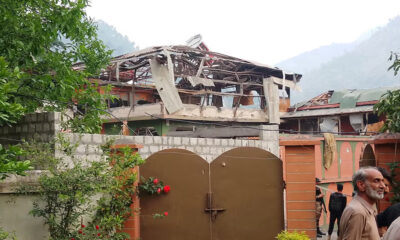
 Regional5 days ago
Regional5 days agoIndia strikes Pakistan over Kashmir tourist killings
-

 Science & Technology4 days ago
Science & Technology4 days agoSkype ends operations after 22 years of service
-

 Latest News4 days ago
Latest News4 days agoIslamic Emirate of Afghanistan ‘concerned’ over rising tensions between Pakistan and India
-
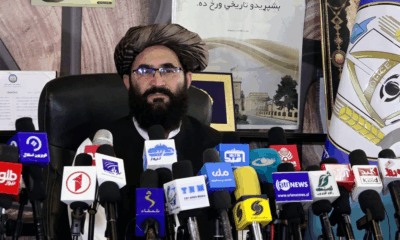
 Latest News4 days ago
Latest News4 days agoPassport Directorate earns nearly 13 billion AFN in one year
-

 World5 days ago
World5 days agoMacron to meet Syrian president on Wednesday, expected to discuss security
-

 Health4 days ago
Health4 days agoWHO confirms second Polio case in Afghanistan
-

 Regional4 days ago
Regional4 days agoIndia dismisses report of Pakistan downing jets as “disinformation”








